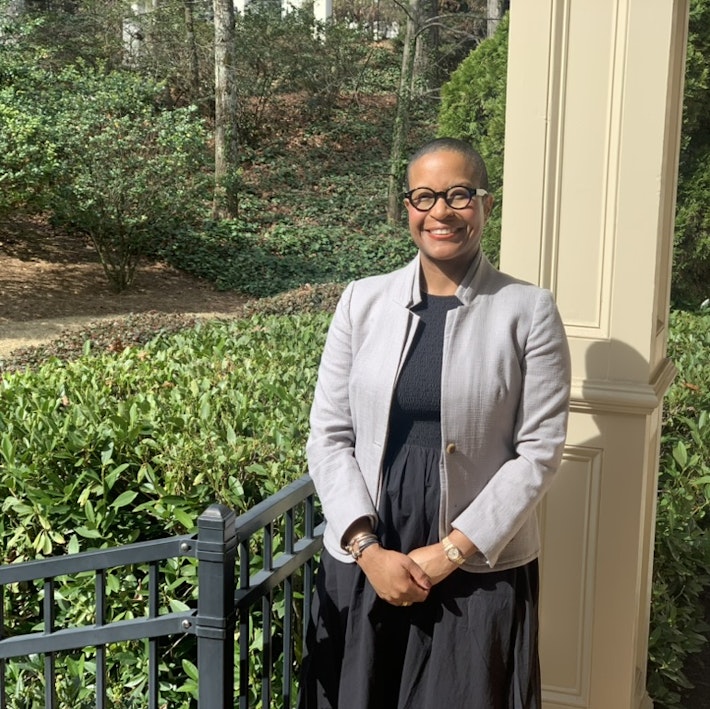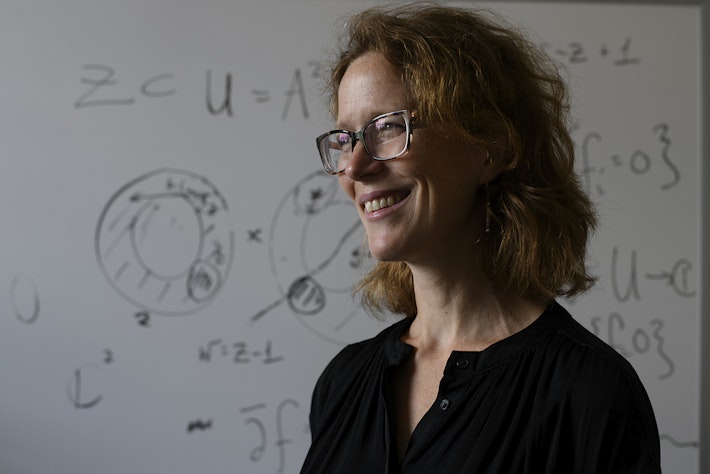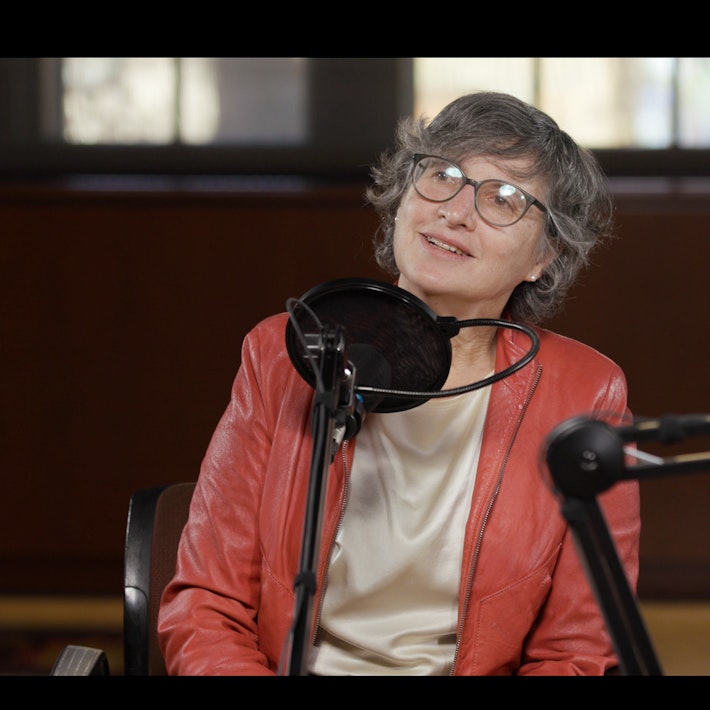Radcliffe Recognizes the Three Most Exceptional Theses by Harvard Undergraduates
Mark Czeisler, Manuel Medrano, and Anwar Omeish win Fay Prize for scholarly excellence and outstanding original research.
Today, the Radcliffe Institute for Advanced Study honored Harvard’s Hoopes Prize winners, and the celebration culminated with the awarding of the Captain Jonathan Fay Prize to three graduating seniors for their exceptional undergraduate theses. Radcliffe College awarded this prize for 90 years, and the Radcliffe Institute has continued the tradition since its founding—as Harvard’s institute for advanced study—in 1999. The honor reflects the mission of the Radcliffe Institute to foster advanced work across a wide range of disciplines.
The 2019 Fay Prize recipients were chosen from among 72 Harvard College seniors, each of whom received the Hoopes Prize for outstanding scholarly work or research. From this group, three Fay Prize winners were selected. The theses of these three undergraduates, in the opinion of a selection committee made up of senior Harvard faculty members, are the most outstanding imaginative works or pieces of original research in any field. The winners’ areas of research span disciplines as diverse as social studies and neurobiology:
Mark Czeisler, “Characterizing the Morphology of Suprachiasmatic Nucleus Neuronal Interactions: Exploring Ultrastructural Features That May Subserve Circadian Synchronization in Mammals”
Czeisler is a neurobiology concentrator. His thesis is a study of a small area of the human brain responsible for setting the “daily rhythms of sleep and wakefulness.” Not only did Czeisler produce findings that, to quote one reader, “opened up a new avenue of study”—or at least revitalized a long-neglected one—but he also demonstrated a remarkable level of leadership and initiative. He initially proposed this study to Professor Jeff Lichtman in Harvard’s Department of Molecular and Cellular Biology as a sophomore. Czeisler then successfully pursued grant funding to cover project expenses and built a partnership between the Lichtman Lab and the Joseph Takahashi Lab at the University of Texas Southwestern Medical Center. In his nomination of Czeisler, Lichtman wrote, “It is hard for me to recall an equivalent amount of initiative in any person I have worked with, much less an undergraduate.”
Manuel Medrano, “Toward a Khipu Transcription ‘Insistence’: A Corpus-Based Study of the Textos Andinos”
Medrano is an applied mathematics concentrator. His thesis is an inter- and multidisciplinary contribution to ongoing scholarly efforts to decipher khipus, which are knotted string devices that were used in the Inca Empire to encode information and keep records. Medrano first produced a digitized version of the Textos Andinos—a compilation of 16th-century Spanish-language transcriptions of indigenous recitations of khipus. He then set out to uncover the linguistic structure used by the indigenous record keepers. In the words of Medrano’s advisor, Professor Gary Urton of Harvard’s Department of Anthropology, “This . . . thesis is an amazing amalgam of skills and knowledge in mathematics, statistics, linguistics, decipherment, Latin American history, Andean archaeology, and the study of ancient writing and record keeping systems.” The result—to quote Urton again—“brings us near to the voices of the ancient khipu makers” more than any research to date.
Anwar Omeish, “Toward the Modern Revolution: Frantz Fanon, Secularity, and the Horizons of Political Possibility in Revolutionary Algeria”
Omeish is a social studies concentrator. Her thesis advisors, Professor Brandon Terry in Harvard’s Department of African and African American Studies and Professor Oludamini Ogunnaike at the College of William and Mary, describe her thesis as “a stunning work of political philosophy for an undergraduate to produce” and “a signal contribution worthy of a far more senior scholar.” Omeish worked with primary sources in Arabic, English, and French to formulate a critique of the foundations of postcolonial studies—one that changed her own advisors’ approach to reading and teaching the work of the philosopher Frantz Fanon. In constructing her argument that Fanon’s work in 20th-century Algeria was perhaps not as subversive as is typically understood, Omeish pushes scholars to engage with—to quote her advisors—“knottier, deeper questions about the differences in metaphysics and epistemology between modern academic discourses and those of other intellectual traditions.”
Tomiko Brown-Nagin, dean of the Radcliffe Institute, Daniel P.S. Paul Professor of Constitutional Law at Harvard Law School, and a professor in Harvard’s Department of History said, “Scholarly excellence and cross-disciplinary research are central to Radcliffe’s mission. The Fay Prize reflects these commitments and recognizes their achievement by Harvard undergraduates. It is a highlight of my first year as dean of the Radcliffe Institute to recognize three undergraduate students who—so early in their lives—have demonstrated excellence by making substantial contributions across a range of scholarly fields.
About the Radcliffe Institute for Advanced Study at Harvard University
The Radcliffe Institute for Advanced Study is a unique space within Harvard—a school dedicated to creating and sharing transformative ideas across all disciplines. Each year, the Institute hosts 50 leading scholars, scientists, and artists from around the world in its renowned residential fellowship program. Radcliffe fosters innovative research collaborations and offers hundreds of public lectures, exhibitions, performances, conferences, and other events annually. The Institute is home to the Schlesinger Library, the nation’s foremost archive on the history of women, gender, and sexuality. For more information about the people and programs of the Radcliffe Institute, visit www.radcliffe.harvard.edu.







